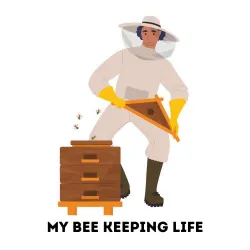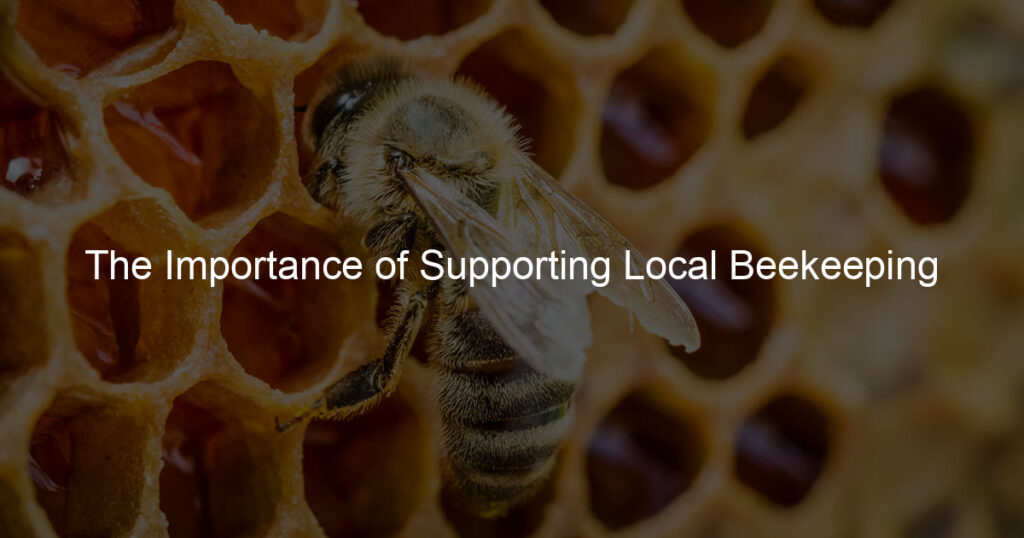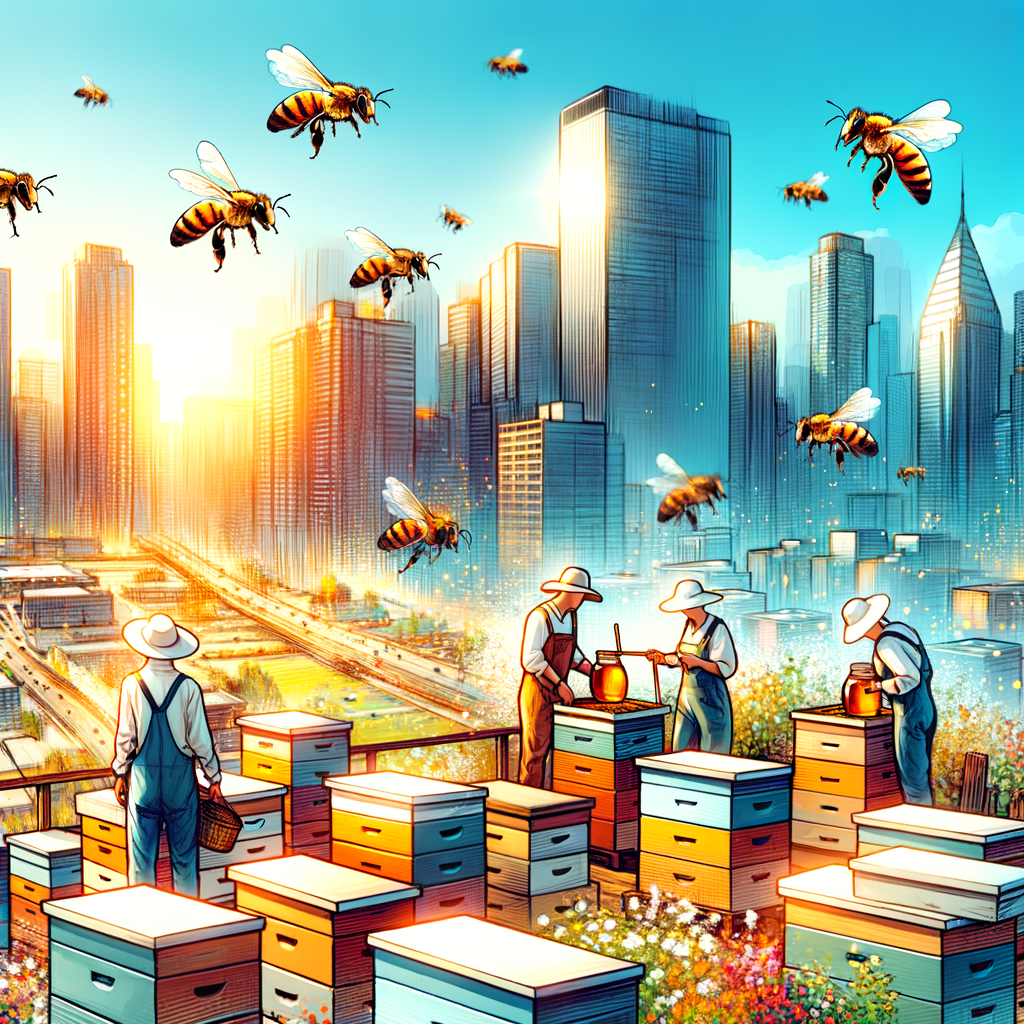As a bee enthusiast, you know the importance of bees in our ecosystem. But did you know that by supporting local beekeeping businesses, you can help keep these important pollinators thriving?
Bees are vital to our environment, and we need to do everything we can to protect them. That’s why supporting local beekeepers is so important. When you buy honey from a local beekeeper, you’re not only getting a delicious product – you’re also helping to ensure the health and well-being of bees in your area.
So next time you’re looking for honey, make sure to support your local beekeepers! Not only will you be getting a great product, but you’ll also be helping to save the bees.
What is the importance of beekeeping?
Beekeeping is an important activity that has far-reaching implications for the environment and economy. Not only does beekeeping foster better pollination, aiding the growth of plants and vegetables essential for our diets, but it also helps diversify local ecosystems.
Beekeepers provide invaluable contributions to the availability of food sources by raising healthy hives and keeping a close eye on their health. Bees are also responsible for producing honey, which is an extraordinary source of vitamins, minerals, and enzymes that benefit human health.
Furthermore, beekeeping provides economic benefits not just to its practitioners but also to local businesses such as farmers’ markets or specialty agriculture stores. Without them, much of what we have today in terms of access to healthy produce would be significantly limited.
That’s why it’s vital to appreciate the importance of beekeeping and help support its practitioners however possible.
How can we support local beekeepers?
Local beekeepers are essential to our planet’s environment, providing vital pollination services and promoting biodiversity.
Unfortunately, they often face financial uncertainty and limited resources. One of the simplest ways that we can support them is by purchasing local honey instead of imported honey. Not only will this provide them with much-needed income, but it also helps reduce air pollution caused by transporting food over long distances.
Another way to help would be to plant a variety of plants in our gardens or yards which attract bees. This could range from flowers like daisies or lavender to herbs such as sage or thyme; their nectar and pollen are crucial in helping colonies build up strength for their winter migration.
Finally, consider getting involved in organizations that focus on protecting the habitats and well-being of local bee populations. Each action taken has a positive ripple effect on beekeeper livelihoods – together we can make a difference in sustaining bee diversity worldwide!
Why is urban beekeeping important?
Urban beekeeping is becoming increasingly important as we struggle to improve the health of our fragile environment. In recent years, cities have become home to a staggering number of honeybee colonies which help keep our ecosystem going.
By harnessing the power of the bees, urban beekeepers can collect and distribute the nectar which enables flowers to provide for the pollen-dependent wildlife found in cities such as birds and butterflies.
At the same time, they also supply us with sustainably harvested raw honey, adding a delicious layer to local cuisine while also providing an invaluable economic boon by selling this local delicacy.
From providing shelter in winter months and stimulating wildflower growth to supplsupplyh honey and wax, urban beekeeping is an essential component of sustainable living that helps us build more resilient communities.
What is the economic importance of beekeeping?
Beekeeping has been a popular agricultural activity around the world since ancient times. It not only produces honey but has numerous economic benefits, too.
The production of honey itself is economically important as it is a valuable natural resource sought after in many markets. Other resources like beeswax, royal jelly, and propolis have high demand as well, making them commercially viable to produce. However, what makes beekeeping even more economically significant are the pollination services that bees provide for agriculture and forestry.
Without the pollination efforts of these hard-working creatures, many ecosystems would struggle financially from the lack of reproductive assistance. Beekeeping also provides employment opportunities and a sustainable source of income for rural communities that cannot afford other forms of earning money.
Ultimately, it is clear how beekeeping can be hugely beneficial for any economy that chooses to invest in this vital and lucrative industry.
How does beekeeping help the economy?
Beekeeping is an ancient industry that has been key to local economies for centuries. Today, the practice of managing honeybee colonies creates significant economic value in many ways, from providing jobs and supporting the production of other agricultural goods to helping to restore and protect natural ecosystems.
Beekeeping offers a fulfilling career path in rural communities where it can be difficult to find good employment opportunities while at the same time helping to support other industries like agriculture. The bee products which are sold have also become increasingly popular in recent years as people have become aware of their many health benefits, including improving immunity and providing powerful antioxidants.
In this way, beekeeping continues to be an important contributor to economic growth- sustaining local production and even creating regenerative income for some people around the world.
It’s A Wrap!
In summary, supporting local beekeeping businesses is essential for the health of our environment and communities. Our pollinators are in trouble and honeybees need our help more than ever.
When you shop at a local beekeeping business, you’re not just buying a product—you’re also helping local economies, encouraging environmental resilience, and creating jobs for traditionally under-supported populations. Without your support, these businesses may not survive, so why not make a habit of shopping locally whenever and wherever you can?
Supporting local beekeeping businesses isn’t just the right thing to do—it’s become a matter of necessity that we simply can’t ignore any longer. After all, if bees can’t thrive, we won’t either. So let’s work together towards a healthier planet by supporting all the incredible local beekeepers out there!








